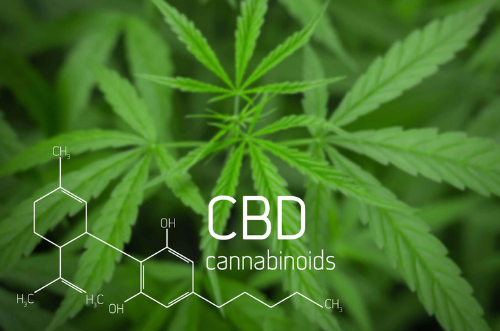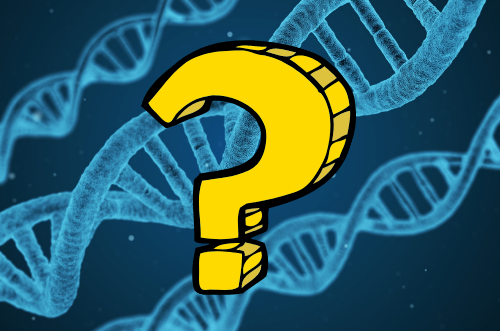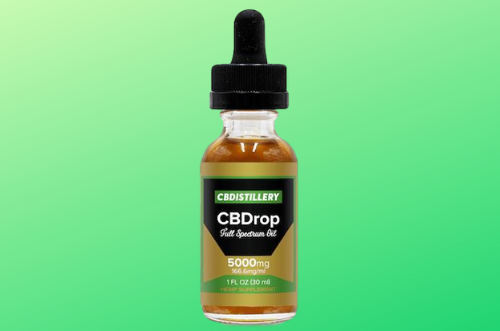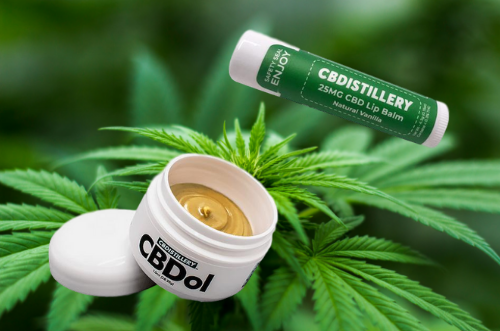What is CBD
CBD
Seemingly overnight, you may have noticed the acronym CBD popping up everywhere. From established vape shops to stand-alone stores, CBD has gone from obscurity to mainstream. So what exactly is CBD? Why has it suddenly appeared on the scene and grown wildly in popularity?
CBD is short for cannabidiol and is a compound found naturally in hemp, which is a relative to traditional cannabis. One of the many reasons why it has suddenly appeared out of nowhere is because the legal restrictions on hemp were greatly loosened. The 2018 Farm Bill was approved and signed by President Trump, and this has allowed hemp and hemp products to be sold and transported across state lines, as long as the hemp had a level of THC under 0.03% (more on THC later). Though there are some restrictions, it effectively made CBD a legal product, since it can be produced from hemp that is either THC free or falls below the federal restriction.
But becoming more accessible is only part of the story. Another important reason it has exploded in popularity is the potential benefits CBD has in treating a variety of ailments, including anxiety, depression, PTSD, chronic pain, and a litany of many other conditions. The science is still pretty new but recent studies are very promising on how effective a medical tool CBD may become.

Benefits of CBD
Though research is still being conducted and evidence reviewed, recent research is extremely promising for CBD. Early studies have shown that CBD is an effective way to treat anxiety, depression, PTSD, inflammatory issues including IBS and symptoms of Crohns disease, and more. This has been another primary reason the popularity of CBD has been soaring. Not only can it help treat extremely common ailments like anxiety, depression, and chronic pain, but it can do so without the negative side-effects you frequently see with common anti-depressants and opioids. CBD also lacks an addictive component, making it ideal for long-term treatment for chronic ailments and an ideal alternative to opioid-based pain management.
Though there is a large range of benefits of CBD, we are going to take the time to focus on the two most common ailments it is used to treat: chronic pain and depression/anxiety.
CBD for Pain
For those struggling with chronic or hard to treat pain, CBD has been game-changing. One of the primary ways that CBD is able to help relieve pain is by acting as an anti-inflammatory, making it ideal for conditions like arthritis, IBS, and any other ailment where chronic inflammation is an issue. Again, as we have mentioned, CBD is able to do this without harsh side-effects or the risk of addiction. It also has grown in popularity with patients seeking pain relief from cancer, multiple sclerosis, and fibromyalgia.
The way that CBD was consumed did not seem to affect the benefits received, either. There are a number of ways that CBD is regularly used to treat chronic pain. CBD can be vaped or smoked, either as a dry-herb hemp nugget or as an oil. This often produces a very quick, strong effect, which is ideal for treating the onset of stronger pain than usual or for those looking for a quicker, more immediate effect.
CBD can also be eaten, either by consuming edible oil or by eating CBD infused food. Most stores carrying CBD products will carry edibles like gummies, for example. This is generally good for taking as a daily supplement to provide pain-relief throughout the day, making ideal for chronic conditions. CBD can also be infused into a topical cream for similar benefits as well as targeting specific areas of pain.


CBD for Anxiety/Depression
Research has also shown promising results for treating depression and anxiety with CBD. Studies have shown that CBD is able to regulate serotonin (the neurotransmitter that is involved with helping you no feel depressed) as traditional anti-depressants can. However, CBD has been shown to be able to affect serotonin production faster than traditional anti-depressants, which is a common problem with people attempting to adopt those medications to treat depression, as it can take weeks of regularly using them before any noticeable effect can be seen. Again, it also lacks the negative side-effects that anti-depressants often have, including weight-gain or an allergic response.
Patients with a generalized anxiety disorder (GAD) have shown marked improvement when taking CBD. In a test involving public speaking, patients reported that they felt noticeably less anxious when public-speaking when compared to a control group on a placebo. Also, unlike powerful tranquilizers like Valium, not only is there no debilitating effect from CBD, but it is also non-addictive.
Again, patients using CBD to treat these disorders are able to do so in a variety of ways. Vaping and smoking are popular choices, especially for trying to manage acute anxiety attacks. Eating CBD-infused edibles or oil are great for maintaining mental health, which is ideal for treating depression. CBD-infused topical lotions are also a great way for long-term management if you do not like to eat or vape CBD products.
How Does CBD Work?
To fully understand the kinds of health benefits CBD may offer, it is important to understand exactly how CBD interacts with the body. CBD is one of the dozens of cannabinoids that are found in cannabis and hemp. Cannabinoids are compounds that interact with our own endocannabinoid system, which is a communication system that helps regulate a number of physiological functions, including mood, pain regulation, and digestion, with a primary focus on keeping the body maintain healthy homeostasis (or helping keep things in the body the way they should be running).
An easy way to visualize the endocannabinoid system is like a reverse lane in the neuron highway. When going forwards, the brain sends a chemical signal called a neurotransmitter from neuron to neuron, allowing a message to travel. With the endocannabinoid system, the cannabinoid travels the opposite way as the neurotransmitter, altering when and how that neuron is able to fire neurotransmitters in the future.
To summarize, the endocannabinoid system regulates a huge amount of processes in the body, and because it can be regulated with cannabinoids like CBD, the use of products containing CBD offer significant promise of treating a number of health issues and also preventing a number of health issues.

CBD vs THC
If you have already begun shopping for CBD infused products, or if you live in states where legal cannabis is available, you may have noticed products listing their THC content or the fact that they are completely THC. What exactly is THC and what is its relation to CBD?
Like CBD, THC (short for tetrahydrocannabinol), is another cannabinoid that is found in cannabis. However, there is an extremely important distinction between the two. THC is the compound that creates the “high” that is usually associated with cannabis use. THC is strictly regulated, still listed as a Schedule 1 drug at the federal level, and only available for legal purchase in a handful of states. CBD, on the other hand, is completely legal, as we have mentioned. The most important distinction between the two, however, is that CBD lacks any kind of psychoactive component that THC has. Or to put in other terms, CBD does not provide the kind of “high” that THC provides the user. This is another key reason that CBD has exploded in popularity. Though early research has shown that THC may offer some similar health benefits that CBD offers (especially pain-management), CBD is able to offer that without debilitating that user. This makes CBD ideal for daily use of chronic conditions since there are not intoxicating side-effects.
However, remember when we said that hemp and CBD products can contain a certain level of THC? If it is important that you avoid any level of THC consumption (for example, if you are regularly drug-tested) you will want to look for CBD products labeled as CBD isolates. This means the product is 100% CBD with no other cannabinoid present, so you will not have to worry about the product containing any level of THC and you still get the numerous benefits that CBD provides! Many CBD products are listed as full-spectrum, which means that they not only contain CBD but also a litany of other cannabinoids, including THC. There are a couple of benefits of using full-spectrum CBD products over isolates.
First, they are usually less expensive, since there is less of a process of refining the CBD from the hemp. Less work for the supplier means a cheaper product for the consumer! Also, when taking a full-spectrum CBD product, you get to take advantage of an effect known as the entourage effect. Studies have shown that when cannabinoids, like CBD and THC, are used together, their overall effectiveness is amplified. For the consumer, that means being able to take less of a product and receiving a stronger effect, especially in pain-relief. However, there are downsides to a full-spectrum product. Your body might interact with the multiple cannabinoids in different and unexpected ways, so you need to regulate and monitor full-spectrum use more closely. It will also be harder to tell what is causing a negative experience if there happens to be one during use, and it is more difficult to regulate CBD dosing across different brands of full-spectrum products, as each is likely to have varying levels of cannabinoids. Also, if it contains THC, it may appear on a drug test. This includes CBD products that are legal that do not give you an intoxicating effect. Be sure to review products carefully to get the best benefit for you!
CBD Oils: The product that started the CBD craze
The product that really helped CBD become easily accessible and contributed to its rise in popularity is CBD oils. With CBD distilled into oil, there are a number of convenient, discrete ways to consume it, but the earliest, most popular method was through vapes and similar devices. Riding on the coat-tails of E-cigarettes and e-juices, the devices that could vape it already existed, so CBD oil was able to easily transition into the market and be vaped discretely and easily.
There are a number of popular CBD options available now, like CBD oils with various flavors and mixes of CBD and THC; plus different cartridge sizes too. Though there are a number of ways to consume CBD now, vaping CBD oils still remains one of the most popular methods.

CBD Gummies and Other Edibles
Now that CBD has become far more mainstream, there are more ways than ever to be able to ingest it aside from vaping. Walk into any CBD store and you will be met with a large number of options, including but not limited to gummies and other snacks and foods, even consumable oil! You can also see drinks and cafes and restaurants beginning to serve CBD infused food or drink items from the menu. If you prefer making your own food from home, edible CBD oil is also widely available and can be infused into home-baked goods of your choice. Edible oil can also be consumed directly.
Eating CBD infused edibles and oils are a great alternative to vaping for those that cannot vape because of lung or breathing issues, or simply prefer not to vape in general. It is also much easier to regulate your dosing, especially if you use consumable oil, as you can measure out the amount of oil precisely how you want. If you want to treat conditions like anxiety or depression, or if you are attempting to find out the ideal dose in general for regular use, then consumables are a fantastic choice.
CBD Topicals
Interested in receiving the benefits of CBD but really are not a fan of vaping or eating it? CBD topical products might be what you need. Products include salve, oils or cream and can be placed directly on the body to receive many of the benefits of CBD. Topicals excel in targeted pain relief, as you can apply the product directly to the area of the body that is experiencing pain, like an IcyHot patch.

CBD for Dogs?
Yes, you read correctly and no, we are not joking. Go into your local CBD retailer and you will very likely see CBD products marketed towards pets like dogs! However, before you stock up for your dog, there are several factors to consider before giving them to your pet.
First, understand that the science behind giving CBD to dogs is in its infancy and largely anecdotal. While the AKC Canine Health Foundation is currently sponsoring a study about the effectiveness of CBD in treating dogs with epilepsy, concrete evidence of the effect of CBD on dogs is still being studied. In addition, when choosing a CBD product for your dog, looking for products tagged as organic will help ensure you do not expose your pet to harmful pesticides or herbicides.
Having said that, there are some possible benefits of giving your dog CBD oils or infused products, and those benefits mirror benefits found for people taking them. They can potentially help treat chronic pain, in particular, nerve pain. As we alluded to before, it is widely reported that CBD products can help treat seizures in dogs as well.
A final note, dogs are extremely sensitive to THC and the intoxicating effects of THC last much longer than it does in humans and symptoms of intoxication are far more pronounced. You need to be sure that you are giving your pups CBD isolates that contain no THC for the best experience for your pet.
CBD Tips
Being a complete novice to using CBD products might make your first experience with it intimidating. Fear not, for we have some CBD tips to make your experience easy and as enjoyable as possible.
You always want to start with a low dose of CBD and work your way up to find a level of comfortable effectiveness. Though CBD will not get you high, it still has physical effects on the body, including relaxation and drowsiness. Taking too much at once, especially for your first time use it, can cause these effects to be greatly pronounced. Start with a small dose, and if you do not notice any benefit, increase your dosing over time. Remember, vaping CBD will cause physical effects more quickly but will fade more quickly, whereas consuming CBD infused products will take longer to take effect but will last longer throughout the day.
If you have taken a CBD product and believe you are having an adverse effect, do not hesitate to contact your primary care physician. They may be able to tell you specifically how your body is reacting and why as well as offer alternatives for treatment if you have trouble tolerating CBD products.
Where to Buy CBD
CBD is readily available in all sorts of avenues. Many stand-alone retail stores can be found that specialize in CBD products, including vape oils, edible oils, infused foods, and even hemp nuggets. Most vape shops have begun to carry CBD vape oil and related products as well since they already carried the tools used to vape it.
If you happen to be in an area that does not have CBD available in a retail location, do not lose heart! CBD products can easily be found online from all kinds of different online shops. Of course, if you want a guarantee of product quality, as well as free shipping, you can always buy your CBD products here at nyvapeshop.com.